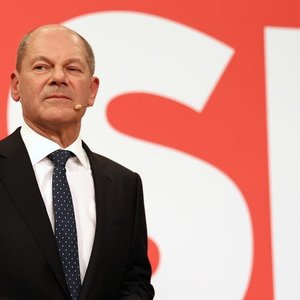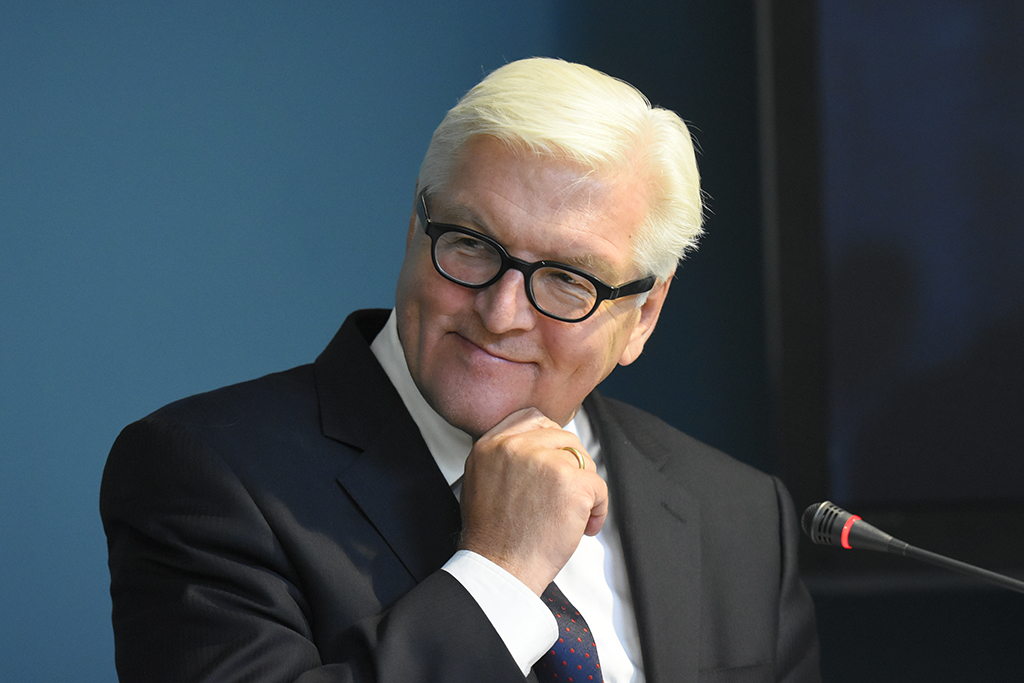
Place of Birth. Education. Frank-Walter Steinmeier was born in Detmold to a working-class family. In 1974, after graduating from high school, he was called up for military service in the Bundeswehr. In 1976 he entered the Justus Liebig University in Giessen, where he studied law and then political science until 1982. In 1986, Frank-Walter Steinmeier defended his doctoral dissertation on the topic "The Legal Status of the Homeless".
Career. In 1975 he joined the Social Democratic Party of Germany.
1986-1991 Frank-Walter Steinmeier was a research fellow at the Faculty of Public Law and Political Science at the University of Giessen.
In 1991, he was Legal Adviser for Information Law and Media Policy at the State Chancellery of Lower Saxony.
1993-1994 headed the personal bureau of the Prime Minister of Lower Saxony, Gerhard Schroeder.
1994-1996 headed the department of political directives, interdepartmental coordination and planning, and from 1996 to 1998 he was secretary of state of the State Chancellery of Lower Saxony.
From November 1998 to July 1999, Frank-Walter Steinmeier was State Secretary of the federal government, authorized to coordinate the activities of intelligence agencies, and from July 1999 to November 2005, head of the Federal Chancellor's office.
In 2005, he was German Foreign Minister in the CDU/CSU-SPD coalition government.
Since 2007, German Vice-Chancellor Frank-Walter Steinmeier replaced Franz Müntefering in this post.
In the first half of 2007, Frank-Walter Steinmeier served as President of the Council of the European Union.
Since October 2007, Steinmeier has also served as Deputy Chairman of the SPD. Until his appointment as one of the vice-chairmen of the Social Democratic Party in October 2007, Steinmeier had never held a post in the SPD. On September 7, 2008, after the resignation of SPD chairman Kurt Beck, before the emergency congress, Frank-Walter Steinmeier led the party.
In 2008, Steinmeier proposed a three-stage plan for resolving the Georgian-Abkhaz conflict, which included the return of refugees, the restoration of Abkhazia with Georgia's money and, in the future, the determination of the political status of Abkhazia, but both sides rejected this document. In August 2008, Georgia's conflict with Abkhazia and South Ossetia escalated into full-scale hostilities. Frank-Walter Steinmeier participated in the peaceful settlement of the conflict, negotiated between Georgia and Russia and called for an immediate ceasefire and dialogue. Steinmeier supported the French initiative of the peace plan and stated that it was pointless to look for the culprit of the conflict before the ceasefire. Then he repeatedly stated that Russia was not fulfilling the agreements on the withdrawal of troops from Georgian territory.
On September 8, 2008, Frank-Walter Steinmeier was nominated as the SPD's candidate for the 2009 German Federal Chancellor. At the same time, Steinmeier himself denied these assumptions, declaring that he would support the candidacy of the SPD chairman Kurt Beck. However, on September 7, 2008, at the SPD congress, Beck was dismissed, and Steinmeier was appointed interim chairman of the party and put forward as a candidate for the post of German chancellor, whose elections were scheduled for September 2009.
On September 27, 2009, elections to the Bundestag were held, as a result of which the SPD suffered a crushing defeat, receiving only 23% of the vote. In this regard, instead of a "grand coalition" with the participation of the CDU and the SPD, a coalition of the CDU with the FDP was formed, and the SPD left the government. The defeat of the party in the elections was also reflected in the leadership of the SPD: a week later, at a special meeting of the plenum of the party, new candidates for leadership positions were nominated. Andrea Nahles, a member of the leadership of the SPD, was nominated for the post of general secretary and approved at the general meeting of the party, which took place in Dresden on November 13, 2009. In this regard, Frank-Walter Steinmeier resigned as party general secretary. Soon after, he became the leader of the SPD parliamentary faction in the Bundestag.
From December 17, 2013 to January 27, 2017 - Minister of Foreign Affairs of Germany.
On February 12, 2017, he won the presidential election and became the elected Federal President of Germany. He took office as Federal President on March 19, 2017.
Regalia. Knight Grand Cross of the Order of Merit of the Italian Republic (2006).
Family. Frank-Walter Steinmeier is married and his wife is Administrative Judge Elke Büdenbender. The couple have a daughter born in 1994. Steinmeier lives with his family in one of the most prestigious districts of Berlin - Zehlendorf. Several times a year he visits Dirk's parents and brother, who live in Detmold. In 2010, Elke Büdenbender underwent a kidney transplant from her husband. In this regard, Steinmeier was forced to temporarily leave the political arena. In October 2010, he returned to active political life.
01/07/2022

